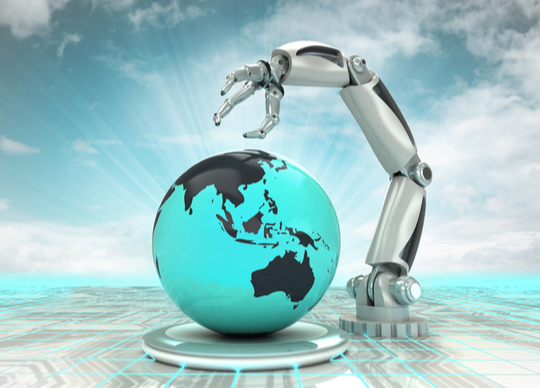
People are turning to robots to support their career development after the COVID-19 pandemic left them feeling lonely and disconnected from their own lives, according to a new study by Oracle and Workplace Intelligence, an HR research and advisory firm.
The study of more than 1,000 Australian employees, managers, HR leaders, and C-level executives found that people have felt stuck in their personal and professional lives but are ready to regain control of their futures. This formed part of a global study, with more than 14,600 people surveyed across 13 countries.
The Australian Workforce Feels Lonely, Disconnected, And Out of Control
More than a year-and-a- half in and out of lockdown, international boarders closed and the continued uncertainty due to the pandemic has left many workers in emotional turmoil, feeling like their lives and careers are out of control.
- 83 percent of people have been negatively impacted by the last year, with many suffering from declining mental health (33 percent); feeling both lonelier than ever before and disconnected from their own lives (each 30 percent); struggling financially (29 percent); and lacking career motivation (28 percent).
- 62 percent found 2021 to be the most stressful year at work ever. More than half (52 percent) of people struggled with mental health at work more in 2021 than in 2020.
- The amount of people who feel little to no control over their personal and professional lives doubled since the start of the pandemic. People noted they have lost control over their personal lives (52 percent); their futures (46 percent); careers (46 percent); and finances (43 percent).
- 73 percent of people feel stuck in their personal lives, feeling anxiety about their future (34 percent); lonelier than ever before (27 percent); struggled with their mental health (26%); and felt trapped in the same routine (25 percent);
People Are Motivated to Make Changes, But Are Facing Big Challenges
Despite struggles over the last year, Australians are eager to make changes in their professional lives.
- 93 percent of people used the past year to reflect on their lives and 89 percent said the meaning of success has changed for them since the pandemic, with work-life balance (43 percent); mental health (39 percent); and workplace flexibility (34 percent) now top priorities. 35 percent also said success at home now means more to them than success at work.
- 73 percent feel stuck professionally, because they don’t have growth opportunities to progress their career (27 percent) and are too overwhelmed to make any changes (25 percent).
- 74 percent of people say feeling stuck in their career has negatively impacted their personal lives as well by adding extra stress and anxiety (41 percent); contributing to feeling stuck personally (31 percent); and taking focus away from their personal lives (29 percent).
- 83 percent of people are ready to make a change, but 80 percent said they are facing major obstacles. The biggest hurdles include not feeling confident enough to make a change (26 percent); seeing no growth opportunities at their company (23 percent); not knowing what career change makes sense for them (22 percent); and financial instability (21 percent).
- Going into 2022, professional development is top of mind with many willing to give up key benefits such as monetary bonuses (50 percent); vacation time (48 percent); flexible work arrangements (44 percent); and even part of their salary (43 percent) for more career opportunities.
- However, 85 percent of the global workforce are not satisfied with their employer’s support. They are looking for organisations to provide more learning and skills development (35 percent); opportunities for new roles within their company (32 percent); and higher salaries (30 percent).
Employees Are Hungry for New Skills And Turning To Technology For Help
To retain and grow top talent amidst changing workplace dynamics, employers need to pay attention to employee needs more than ever before and leverage technology to provide better support.
- 82 percent of people want technology to help define their future by identifying skills they need to develop (36 percent); recommending ways to learn new skills (34 percent); and providing next steps to progress towards career goals (32 percent).
- 70 percent of people would make life changes based on robot recommendations.
- 78 percent believe robots can support their careers better than a human by giving unbiased recommendations (35 percent); finding new jobs that fit their current skills (33 percent); or quickly answering questions about their career (31 percent).
- People believe humans still have a critical role to play in career development and believe humans are better at providing support by offering advice based on personal experience (49 percent); looking beyond a resume to recommend roles that fit personalities (48 percent); and identifying strengths and weaknesses (45percent).
- 83 percent of people believe their company should be doing more to listen to their needs and 48 percent are more likely to stay with a company that uses advanced technologies like AI to support career growth.
“The past year and a half changed how we work including where we work and, for a lot of people, who we work for. While there have been a lot of challenges for both employees and employers, this has been an opportunity to change the workplace for the better,” said Dan Schawbel, managing partner, Workplace Intelligence. “The results clearly show that investment in skills and career development is now a key differentiator for employers as it plays a significant role in employees feeling like they have control over their personal and professional lives. Businesses that invest in their employees and help them find opportunities will reap the benefits of a productive, engaged workforce.”
“Over the past year we’ve seen massive change in the way organisations across Australia and New Zealand deliver their services. As a result, HR executives are very focused on rightsizing the business around their new operating models, which means restructuring, reskilling and redeploying their workforce,” said Rowan Tonkin, Senior Director HR Transformation JAPAC, Oracle. “Even still, 4 in 5 respondents feel their organisation has a skill gap that needs to close. Many organisations have pools of unstructured employee and skills data, but in order to close this gap need to apply more structure around defining and identifying talent within their organisation.”






